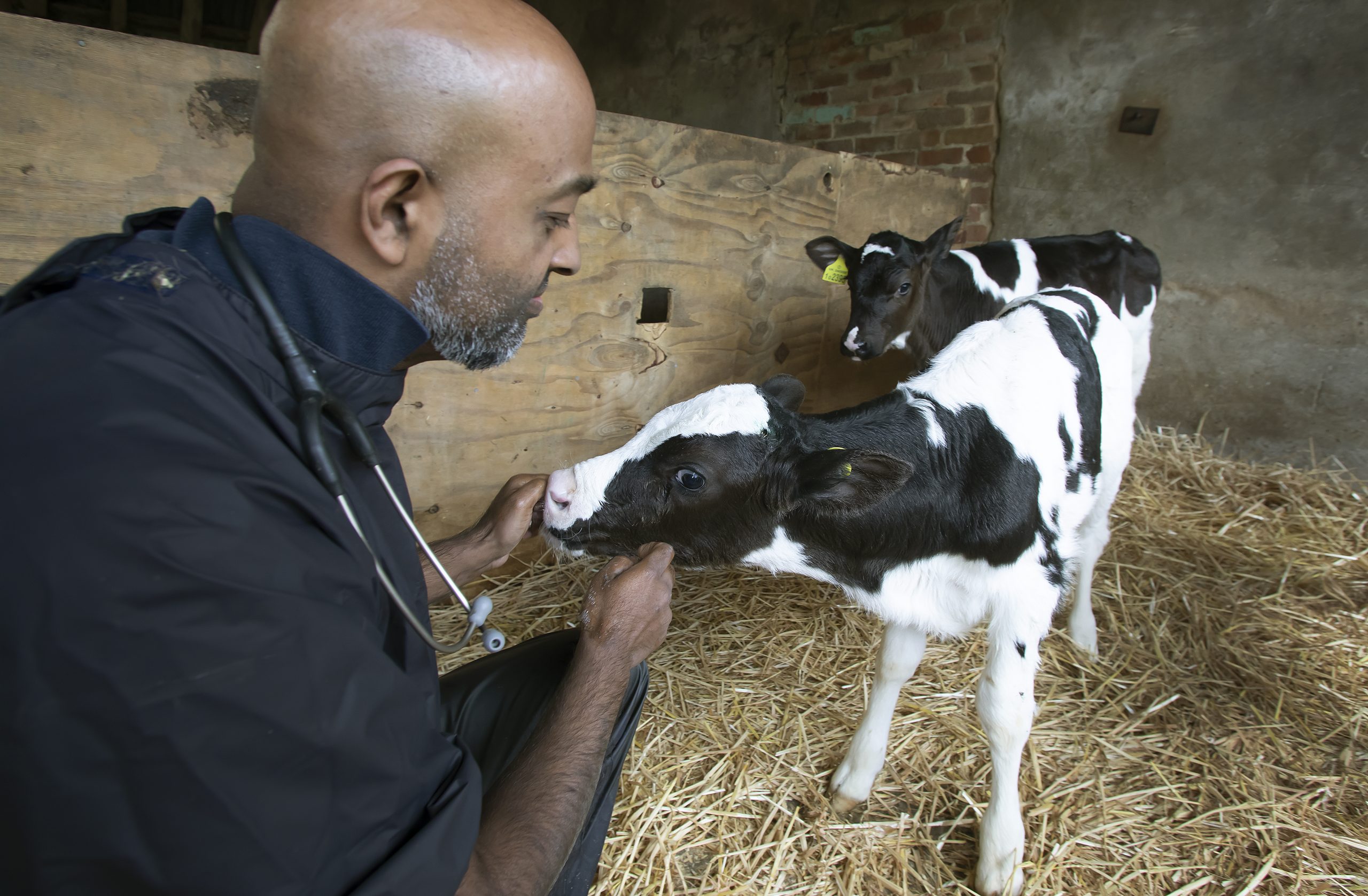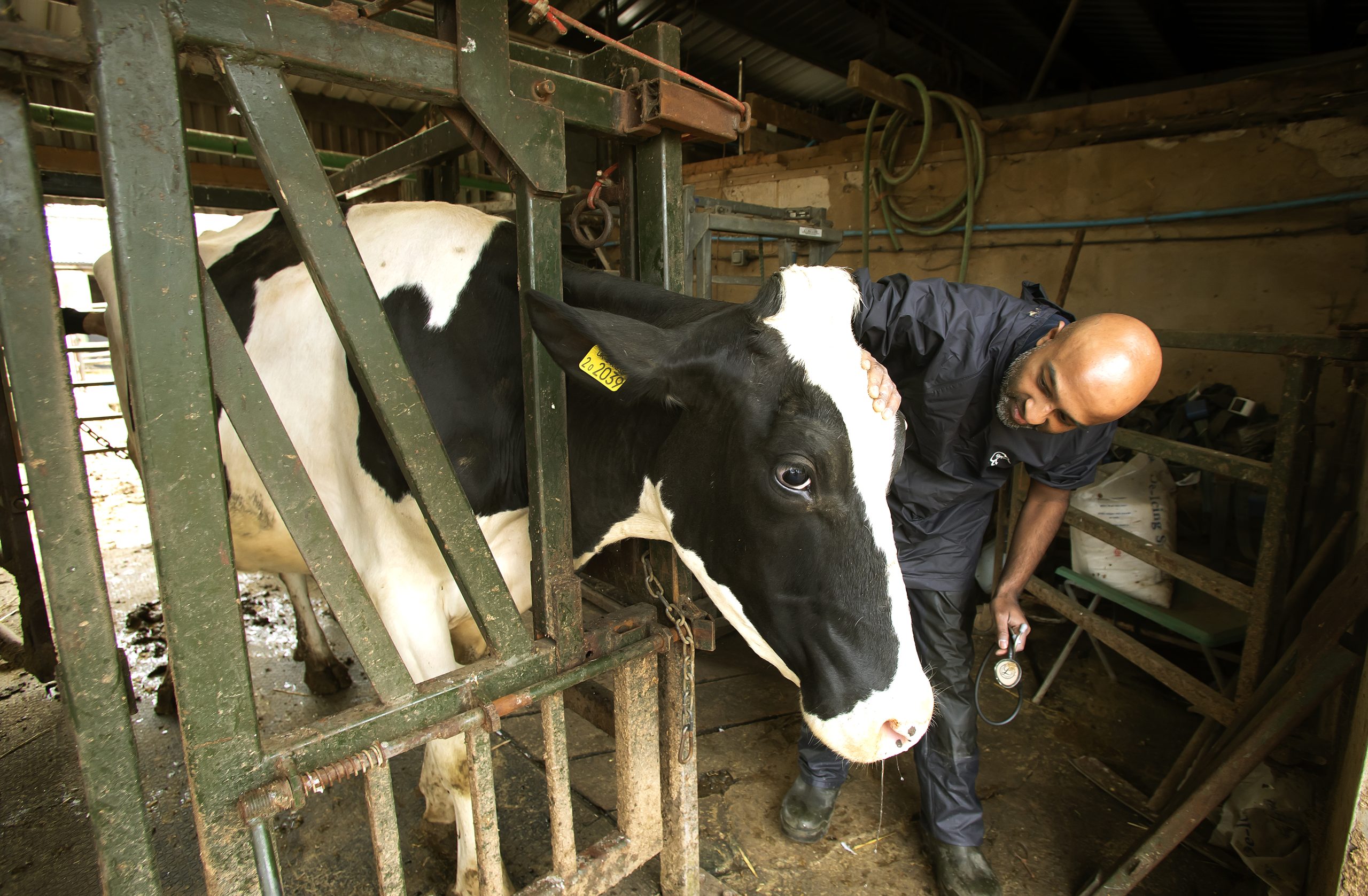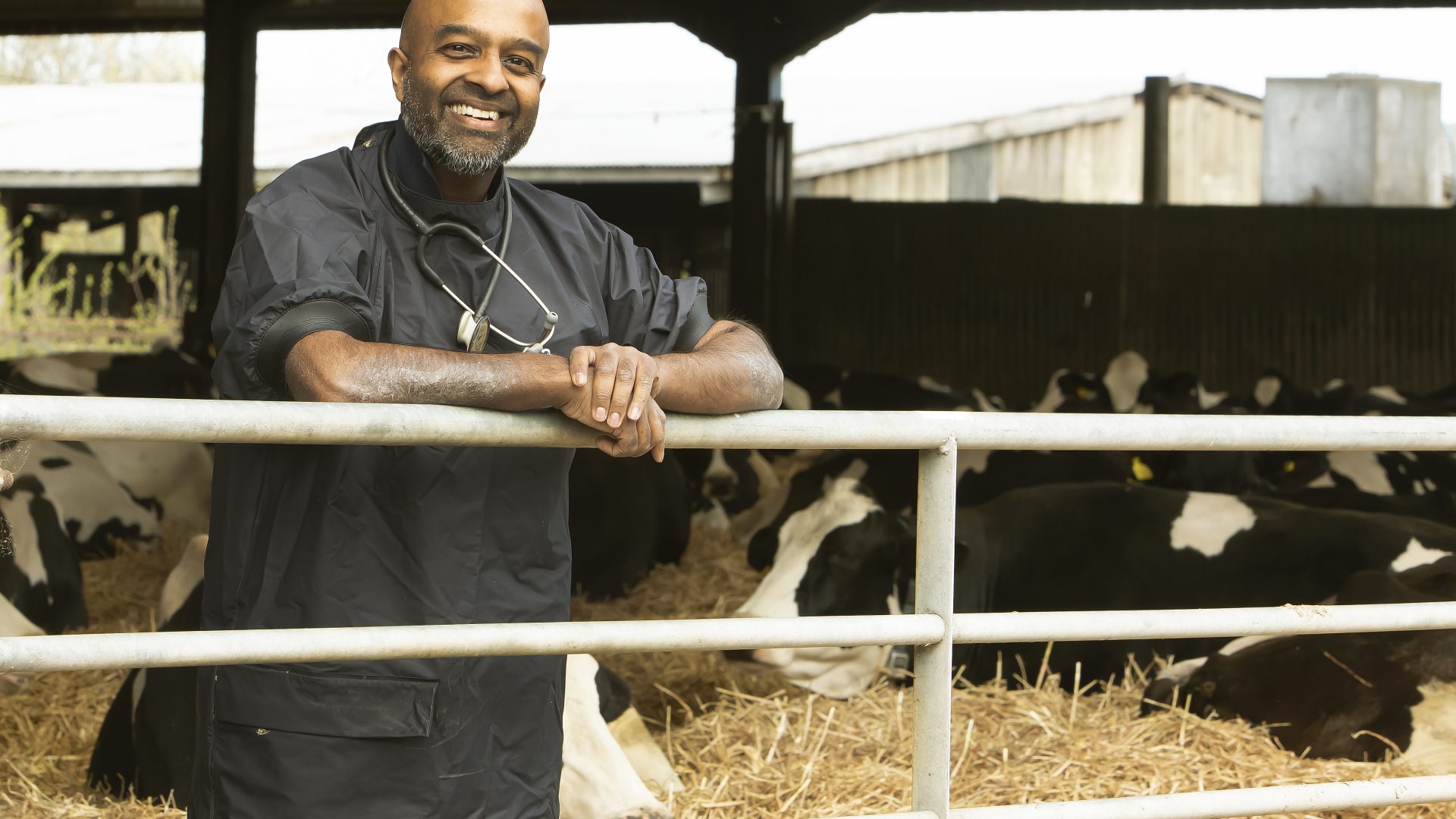VetPartners is dispelling the myths about what it takes to be a farm vet.
We’re committed to building diverse, inclusive workplaces where colleagues from all backgrounds can enjoy happy, thriving careers in our farm and mixed practices even if they did not grow up on a farm.
Here, Navaratnam Partheeban shares his career journey and how he found his true – yet unlikely – calling to become a farm vet….
THERE are few better sights for Navaratnam Partheeban than a herd of 40 healthy, happy cows contentedly grazing on a grassy hill.
Partheeban, or Theeb as he is known, has an unabashed passion for cows and a deep knowledge of the dairy industry that he’s been part of since graduating in 2009.
A farm production animal vet in Chelmsford, he runs Westpoint Farm Vets’ pro-dairy consultancy across the UK, providing farm clients with herd health support and technical advice.
“I love that there is individual cow medicine and herd health medicine, and I love all the new innovations in dairy farming,” he says.
“With all the new ideas and technology, you really feel that you’re on the cutting edge of the farming industry.”
Theeb’s journey to career happiness has not been without its challenges and becoming a farm vet was an unexpected choice.
With a father from Malaysia and a mother from Sri Lanka, who settled in the UK, he was encouraged to pursue a career, such as medicine or engineering, but the veterinary profession was entering into an unknown for someone from his ethnic background.
However, an uncle working as a small animal vet in East London gave Theeb an insight into the profession when he allowed his nephew to accompany him to the practice when he was just seven – and the youngster become captivated by the idea of becoming a vet.
Other than his uncle, there were few role models for Theeb when he began studying, first for a Degree in Zoology at Manchester University, before achieving a place to study veterinary medicine at the University of Edinburgh, as Black, Asian and minority ethnicities (BAME) people make up a total of only 3% of the veterinary workforce in the UK.
Only four of the 120 veterinary students in his cohort at Edinburgh were black/ethnic minority students, which was a taste of the lack of diversity he was to encounter when he entered a profession that is overwhelmingly white.
While his enthusiasm for farm animals grew and grew, the prejudice and, at times, outright racism he faced in a previous clinical role, often took its toll on his mental health and eroded his love for the job.
“In a previous clinical role, one farmer didn’t even want me on his farm based on the colour of my skin and said he wanted my boss instead,” recalls Theeb.
“Mentally, that was one of the most difficult things I have faced. The impact it had on me meant I lost confidence in myself, I lost my love of the job and was left feeling frustrated and helpless.
“All I knew in life was being a cow vet and I had worked so hard to get where I was as a senior vet.
“It was at that point that I decided to leave the profession and join the pharmaceutical industry. It was a different environment and I saw diversity for the first time in my career. Stepping away, enabled me to get my confidence back and gave me an opportunity to start making a stand and championship more equality, diversity and inclusion in the veterinary world.
“I was able to gather my thoughts and say “this is not good enough” and look at ways I could raise awareness of the lack of diversity.”
After returning to clinical practice at Westpoint Farm Vets in Chelmsford two years ago, he is more committed than ever to breaking down barriers to help open up the profession to young BAME people and ensure the veterinary profession becomes more diverse and inclusive.
Despite the challenges, Theeb believes a career as a farm vet can be happy and fulfilling.
 As someone who isn’t from a farming background – he grew up in an urban environment – he is helping to dispel the myth about what it takes to become a successful farm vet.
As someone who isn’t from a farming background – he grew up in an urban environment – he is helping to dispel the myth about what it takes to become a successful farm vet.
He has become a role model that he didn’t have for a new generation of vets – and he has become a powerful one at that.
In 2016, he co-founded the British Veterinary Ethnicity and Diversity Society (BVEDS)
after realising that there was no support for BAME vets, nurses and students facing
discrimination in the profession.
He has raised awareness of the need for greater diversity in the farming and veterinary world through talks to groups such as the British Cattle Veterinary Association and the National Farmers Union.
He is also passionate about connecting children from areas of high social and economic disadvantage with the countryside through his role as a trustee of The Country Trust, a national educational charity.
Earlier this year, VetPartners launched a bursary scheme for vets to help remove the financial barrier and open up the profession to people from more walks of life.
Theeb said: “I’ve done a lot of work to increase diversity and inclusion in the veterinary sector but there is still a lot of work to be done to encourage young people from non-traditional backgrounds to become farm vets.
“Ethnic diversity in the profession has hardly increased within the last 10 years but awareness has massively risen. Although it is still early days, there is a widening of participation and there is a move to trying to recruit people from low income backgrounds. The VetPartners bursaries are a really positive step in the right direction as the financial barrier can be insurmountable for a lot of people.
“I work in a fantastic environment at Westpoint where I work with great people, who are supportive, welcoming and caring, and we love our careers.
“When things aren’t going well and you face prejudice, that’s when I realise I am in the right place because I get the support from my practice, where few colleagues are from farming backgrounds themselves. I feel 100% supported for who I am so I feel respected and confident.
“Hopefully we are the role models to show students they can be a farm vet even if they’re not from a farming background.
- VetPartners has pledged a five-year package of bursaries totalling more than £500,000, which will support 75 students over the period who already have a university place and who would struggle to fund their studies without additional financial support.
- To apply for a bursary, go to https://vetpartners.co.uk/student-sponsorship-form/
For media enquiries, please contact Amanda Little, VetPartners PR and Communications Director. Email amanda.little@vetpartners.co.uk

